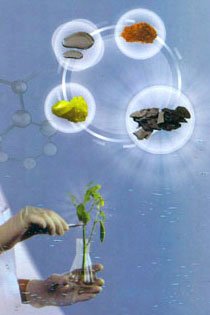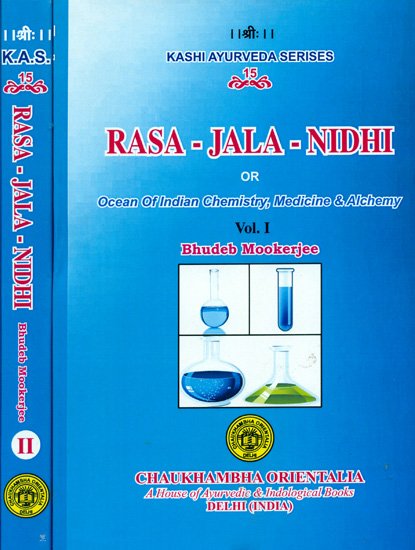Rasa Jala Nidhi, vol 4: Iatrochemistry
by Bhudeb Mookerjee | 1938 | 52,258 words | ISBN-10: 8170305829 | ISBN-13: 9788170305828
This fourth volume of the Rasa-jala-nidhi deals with Rasa-chikitsa-vidya, also known a the science of Iatrchemistry (chemical medicine), a major branch of Ayurveda. It contains Ayurvedic treatments for Fever and Diarrhea. The Rasa-jala-nidhi (“the ocean of Iatrochemistry, or, chemical medicine) is a compendium of Sanskrit verses dealing with ancie...
Part 11 - Restrictions regarding bath
Taking bath increases hunger, longevity, and strength. It removes itches, dirt, fatigue, perspiration, drowsiness, thirst, inflammation, and heat.
It is prohibited in fever (except when it is due to consumption), diahrrhoea, diseases of the eye, ear, and mouth, swelling of the belly by wind, obstruction of the nose by phlegm dried up by wind, ardita (facial paralysis), and within 48 minutes aft nr taking meal.
Bath in tepid water is salutary from the middle of November to March. At other parts of the year, taking bath in cold water every day (in India) is good for health. Bath In cold water is absolutely necessary for patients suffering from loss of consciousness, biliousness, sensation of heat, inflammation, poison, impurities of the blood, ailments following upon an excessive drinking of liquor, giddiness, fatigue, asthma of a virulent typo, swelling of the body, belching with an emission of smoke, putrefaction of food (in the stomach) without digestion, dryness of mouth and throat, and rakta-pitta or hemeptosis
Conclusion:
 This concludes ‘Restrictions regarding bath’ included in Bhudeb Mookerjee Rasa Jala Nidhi, vol 4: Initiation, Mercury and Laboratory. The text includes treatments, recipes and remedies and is categorised as Rasa Shastra: an important branch of Ayurveda that specialises in medicinal/ herbal chemistry, alchemy and mineralogy, for the purpose of prolonging and preserving life.
This concludes ‘Restrictions regarding bath’ included in Bhudeb Mookerjee Rasa Jala Nidhi, vol 4: Initiation, Mercury and Laboratory. The text includes treatments, recipes and remedies and is categorised as Rasa Shastra: an important branch of Ayurveda that specialises in medicinal/ herbal chemistry, alchemy and mineralogy, for the purpose of prolonging and preserving life.
